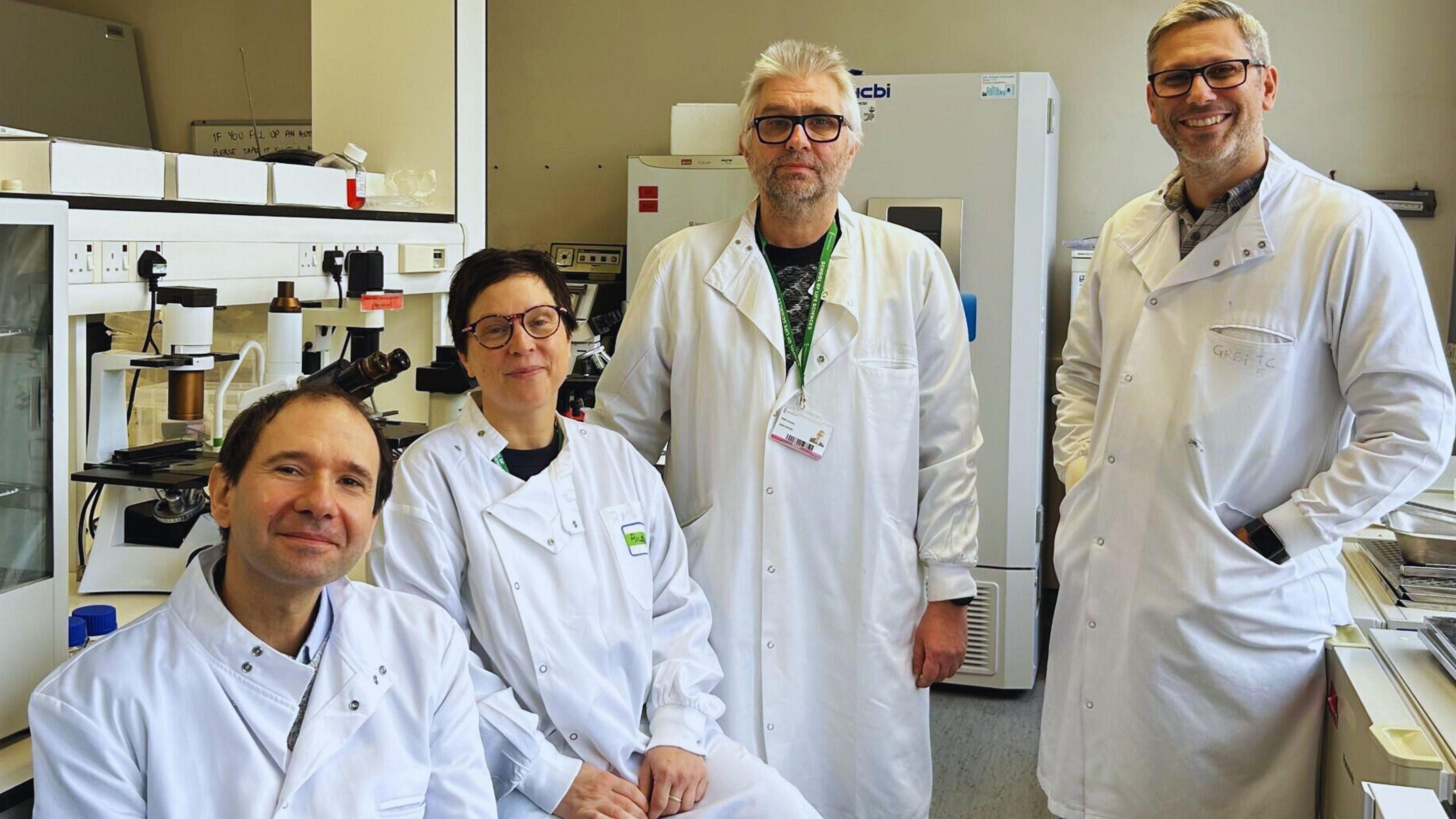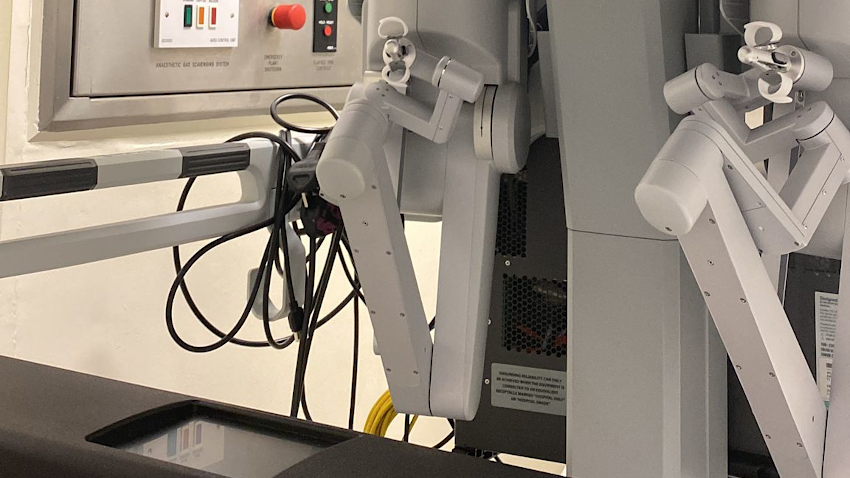Hopes new bowel cancer blood test could save lives

The Univeristy of Essex's research team, featuring (from left) Dr Vlad Teif, Dr Andrea Mohr, Dr Ralf Zwacka, and Dr Greg Brooke
- Published
Researchers have developed a new bowel cancer blood test they believe could save lives.
The University of Essex said the minimally invasive analysis could detect the disease in its early stages when it is more treatable.
Doctors have typically screened for the cancer with a faecal immunochemical test - or poo test.
Bowel Cancer UK awarded £165,000 for the research, which Dr Lisa Wilde from the charity said would "accelerate a shift towards earlier diagnosis".
The new DNA analysis technique based on blood tests aims to increase screening uptake by encouraging more people who were reluctant to undergo a faecal immunochemical test to come forward.
It has been developed by a team led by Dr Vladimir Teif and Dr Ralf Zwacka of the university's school of life sciences.

The University of Essex's main campus is based in Colchester
Dr Teif said: "[It] will enable us to progress our research on liquid biopsies based on cell-free DNA from bodily fluids, with the goal to improve diagnosis at early stages of the disease."
The test would work by checking blood samples for DNA released from tumours.
This cell-free DNA was harmless but offered scientists a valuable way to look for clues about what was going on in the body.
Dr Wilde from Bowel Cancer UK said: "With our new research strategy, we're continuing to work hard for our vision of a future where nobody dies of bowel cancer," she added.
"An important part of this is ensuring more people are diagnosed at the earliest stages when the disease is easier to treat, and investing into vital bowel cancer research is one of the best ways to do this."
Get in touch
Do you have a story suggestion for Essex?
Follow Essex news on BBC Sounds, Facebook, external, Instagram, external and X, external.
Related topics
- Published10 March

- Published21 February

- Published19 February
